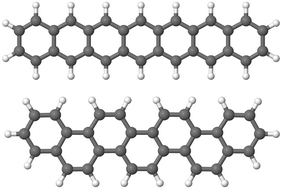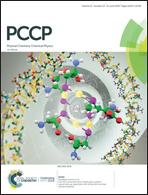Current-constrained one-electron reduced density-matrix theory for non-equilibrium steady-state molecular conductivity
Abstract
In the effort to create ever smaller electronic devices, the idea of single molecule circuit elements has sparked the imagination of scientists for nearly fifty years. While traditional theories for non-equilibrium steady-state molecular conductivity like the non-equilibrium Green's function density functional theory determine the current from an applied voltage, the recently proposed current-constrained density-matrix theory computes the voltage from a current constraint on the molecule. In the present paper we extend the current-constrained density-matrix theory from its two-electron reduced density-matrix (2-RDM) formulation to a one-electron reduced density matrix (1-RDM) formulation that is applicable to Hartree–Fock, density functional, and tight-binding theories. We demonstrate the current-constrained 1-RDM method through the computation of the theoretical, intrinsic resistance of acenes and phenacenes.



 Please wait while we load your content...
Please wait while we load your content...